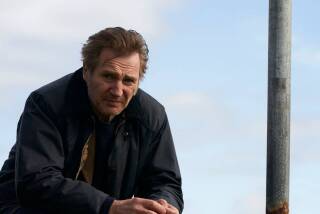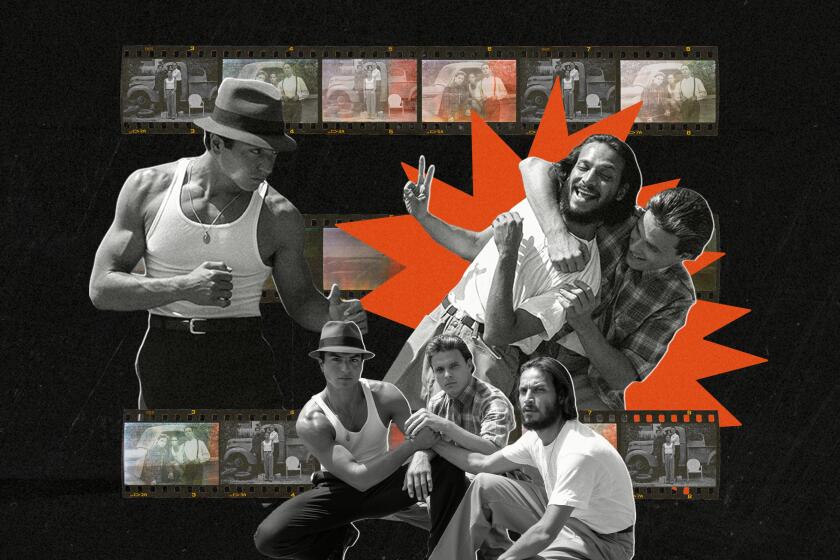Review: Alex Gibney revisits the Irish Troubles in his angry true-crime doc ‘No Stone Unturned’
On June 18, 1994, two masked men armed with assault rifles entered a pub in Loughinisland, a village in County Down, Northern Ireland, where locals had gathered to watch the Irish Republic trounce Italy in the World Cup. The assailants opened fire, killing six patrons, all of them Catholic men, and injuring five more.
While a Protestant paramilitary group called the Ulster Volunteer Force claimed responsibility, no suspects were identified or charged. For 22 years, the massacre remained just one more example of the anonymous civilian murders that proliferated during the long, brutal history of the Troubles.
Until now, apparently. Toward the end of “No Stone Unturned,” his dense, disturbing and palpably angry new documentary about the Loughinisland case, filmmaker Alex Gibney takes the remarkable step of naming the suspects. It’s a controversial decision that, as he has said in interviews, he hopes will lead to long-delayed arrests and provide some closure for the survivors and the victims’ loved ones, many of whom appear in the film.
But the bulk of Gibney’s nearly two-hour investigation is consumed with what might well be an even greater outrage, which is the question of why the crime went unsolved for so long. In answering that, “No Stone Unturned” assembles a vivid primer on the Troubles dating back to the 1920s, laying out the tensions between the mostly Catholic republicans pushing for Irish reunification and the mostly Protestant loyalists intent on keeping Northern Ireland within the United Kingdom.
As we’re reminded via reams of gritty TV news footage, the rampant killing on both sides could be as arbitrary as it was appalling, each day bringing terrible news of fresh atrocities. Gibney identifies key figures within the dizzyingly elaborate network of spies and assassins (“madness,” as one journalist calls it) who waged war in the streets and in the shadows, doing their part to ensure that the Irish struggle raged on for decades.
One of the more troubling implications of the Loughinisland massacre, which was claimed as retaliation for the shootings of three UVF leaders earlier that month, is that it occurred during the last gasp of the Troubles, as both sides were taking tentative steps toward peace. A police cover-up, the movie suggests, might have been deemed necessary to ensure that peace, effectively turning the victims into political casualties. That would certainly account for how a rich trove of forensic evidence in the Loughinisland case, including an intact getaway car and a murder weapon, went mysteriously missing over time.
For years, those most affected by the tragedy pressed the authorities for answers, but they didn’t get them until 2016, when a police ombudsman’s report found clear evidence of collusion between the police and the UVF in shielding the killers, at least one of whom was working as an informant at the time of the 1994 attack. That word “collusion,” much bandied about in recent American political discourse, gets an especially vigorous workout here as the film delves into the ties between Northern Irish police officers and loyalist paramilitary groups, which granted informants enormous power.
None of this, apart from the eventual naming of names, can be described as revelatory. Gibney’s genius is less for uncovering information than synthesizing it in such a way that we can see the outlines of sinister conspiracies at work. To some extent “No Stone Unturned” recalls “Mea Maxima Culpa: Silence in the House of God,” his 2012 investigation into sexual abuse within the Catholic Church. That documentary similarly treated a single case as an entry point in a chain of implication stretching to the highest levels of leadership — the Vatican in that film, the British government in this one.
“No Stone Unturned” doesn’t have much to say about the religious underpinnings of the Troubles, which is to say it doesn’t dignify the so-called spiritual convictions that would drive anyone, Catholic or Protestant, to commit murder in the name of their faith. Gibney remains, as ever, a principled skeptic of absolutist beliefs and the cover they often provide for acts of terror and violence.
He is also an unapologetic cinematic sensationalist, as we are periodically reminded by the film’s ill-advised reenactments of the massacre and the subsequent getaway. It’s hardly the first time Gibney has sought to bring a bit of showmanship to bear on his material, but it’s one of a few aesthetic choices here that suggest this story holds an unusual personal dimension for him. (He first examined the Loughinisland case in his 2014 ESPN short, “Ceasefire Massacre,” though he has since disavowed his findings in that film, which makes the new one something of a feature-length corrective.)
We hear Gibney’s voice a lot in “No Stone Unturned” — sometimes narrating, sometimes asking questions — but his presence can be felt most vividly in his most daring gambit, which feels motivated in part by his rage on behalf of the Loughinisland victims. Near the end of the film he pushes the camera into guerrilla territory, stepping boldly beyond the parameters of the investigation he has established. It may not be the most prudent or journalistically defensible decision, but you can’t say he doesn’t earn that title.
------------
‘No Stone Unturned’
Not rated
Running time: 1 hour, 51 minutes
Playing: Laemmle’s Monica Film Center, Santa Monica
See the most-read stories in Entertainment this hour »
Movie Trailers
More to Read
Only good movies
Get the Indie Focus newsletter, Mark Olsen's weekly guide to the world of cinema.
You may occasionally receive promotional content from the Los Angeles Times.







